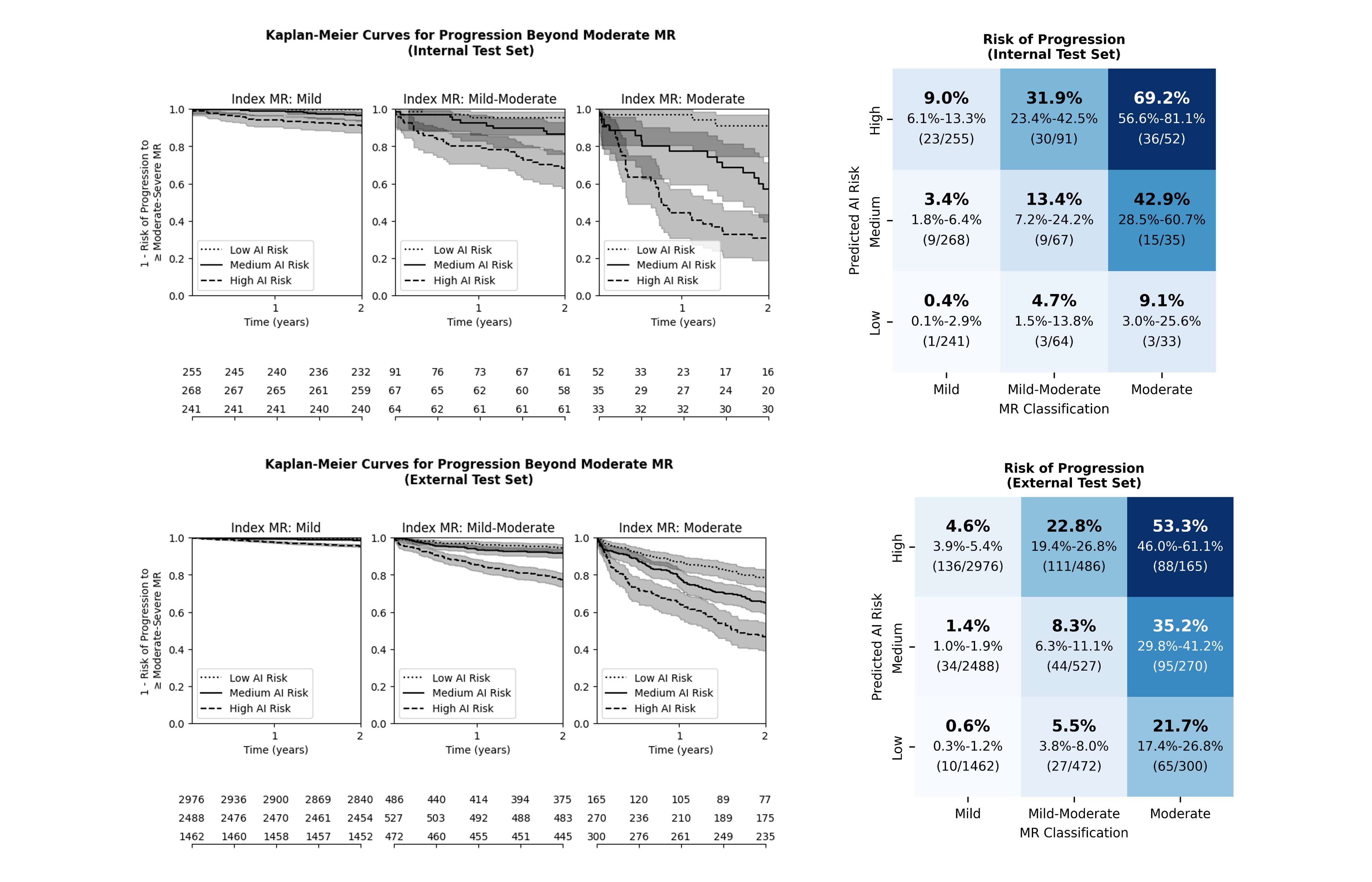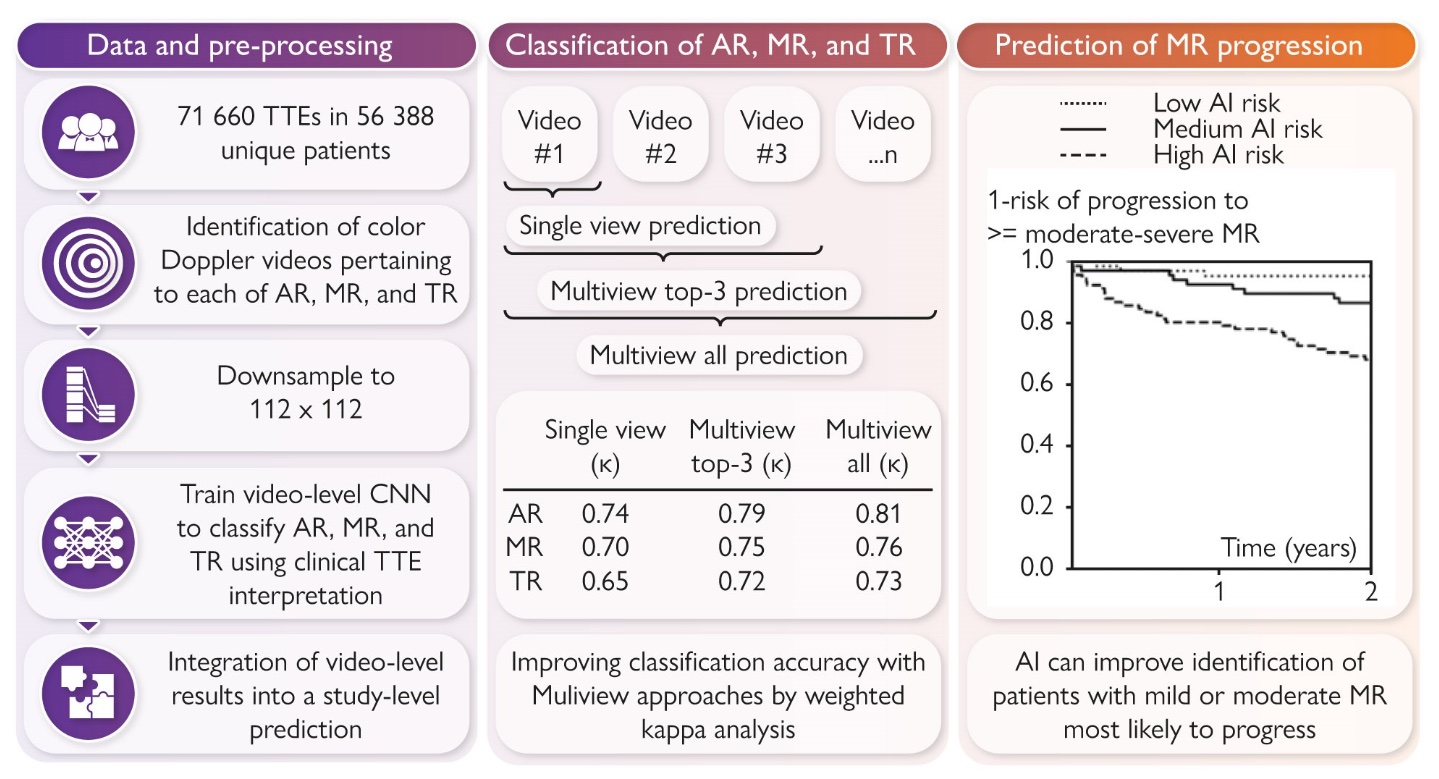DELINEATE
Deep Learning for Automated Assessment of Valve Disease from Echocardiography
Valvular regurgitation—particularly mitral (MR), aortic (AR), and tricuspid (TR)—is a common and undertreated contributor to heart failure and mortality. Manual assessment using color Doppler echocardiography remains challenging, subjective, and time-intensive. Delineate Regurgitation introduces a deep learning system for automated classification of valvular regurgitation severity, as well as a novel prognostic tool for predicting progression of MR over time.
Key Features & Performance
- Multi-Valve Assessment: Accurately classifies severity of AR, MR, and TR using color Doppler videos from complete transthoracic echocardiograms (TTEs).
- Study-Level Integration: Aggregates predictions from multiple views and videos per exam, outperforming single-view models.
- High Agreement with Cardiologists: Achieved weighted Kappa of 0.76–0.81 across valves in external test sets.
- MR Progression Risk Model: Identifies patients most likely to progress to severe MR with a hazard ratio of 4.1, independent of known clinical risk factors.
Peer-Reviewed Publications
Published in Circulation.
✔ 61,689 TTEs from a single health system
✔ Exact accuracy 82% internal, 79% external
✔ AUROC = 0.98 for detecting ≥moderate MR
✔ 6-step ordinal agreement: 99% within ±1 step

Published in European Heart Journal.
✔ 71,660 TTEs and over 1.2 million Doppler videos
✔ External weighted κ: AR 0.76, MR 0.72, TR 0.64
✔ Multiview > single view in accuracy
✔ Prognostic MR risk score: HR = 4.1 (CI 2.5–6.6)

Clinical Vision
Delineate Regurgitation has the potential to standardize regurgitation assessment at scale and prioritize patients for follow-up. Future directions include silent deployment across health systems, integration with echocardiography viewers, and use as a decision-support tool for AI-enhanced cardiovascular care.
